01:40
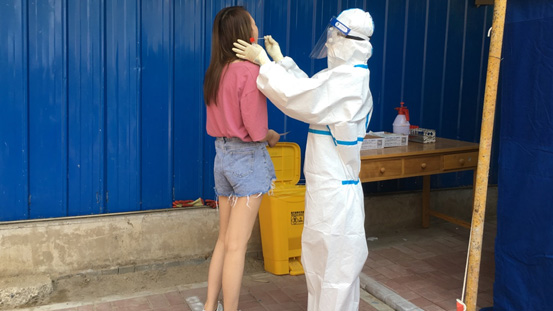
Liu Yunlei works for a Beijing company. He booked an appointment days ago for this nucleic acid test at Beijing's Haidian Hospital. It cost him 180 yuan, or about 25 U.S. dollars.
"I need to travel out of Beijing for work, so I need a test result within the last week. Without this, my destination cities will not let me in," Liu said.
The government didn't ask all residents to get tested for coronavirus. But for those who need to leave Beijing after June 16, the test is a must.
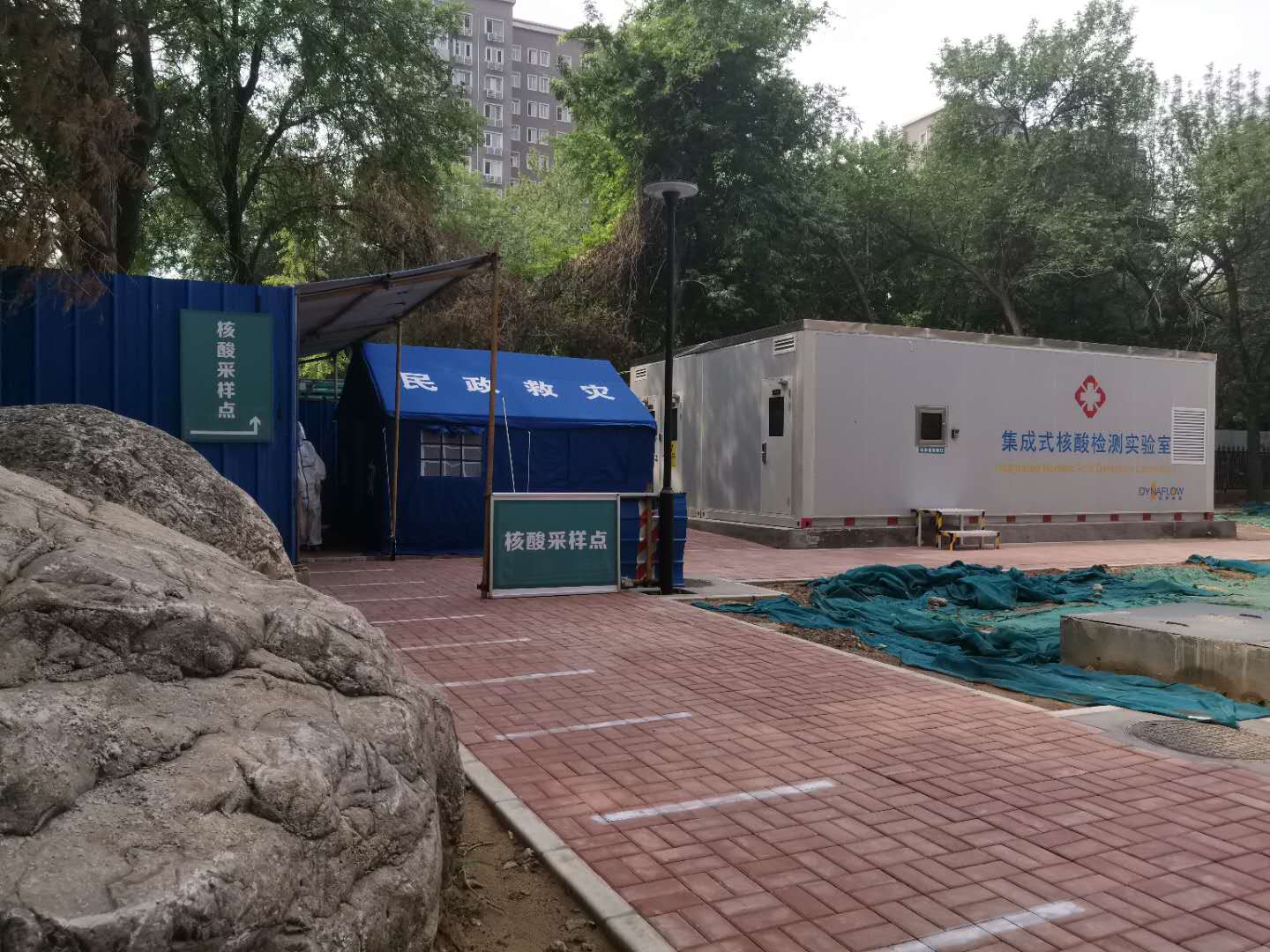
Temporary area for nucleic acid tests and a lab at Beijing Haidian Hospital. Wu Guoxiu/CGTN
Temporary area for nucleic acid tests and a lab at Beijing Haidian Hospital. Wu Guoxiu/CGTN
The fever clinic is quite a distance away. To prevent hospital infections, the temporary area is for people without respiratory symptoms to get the test. They may include in-hospital patients and their families, and other Beijing residents who seek a test.
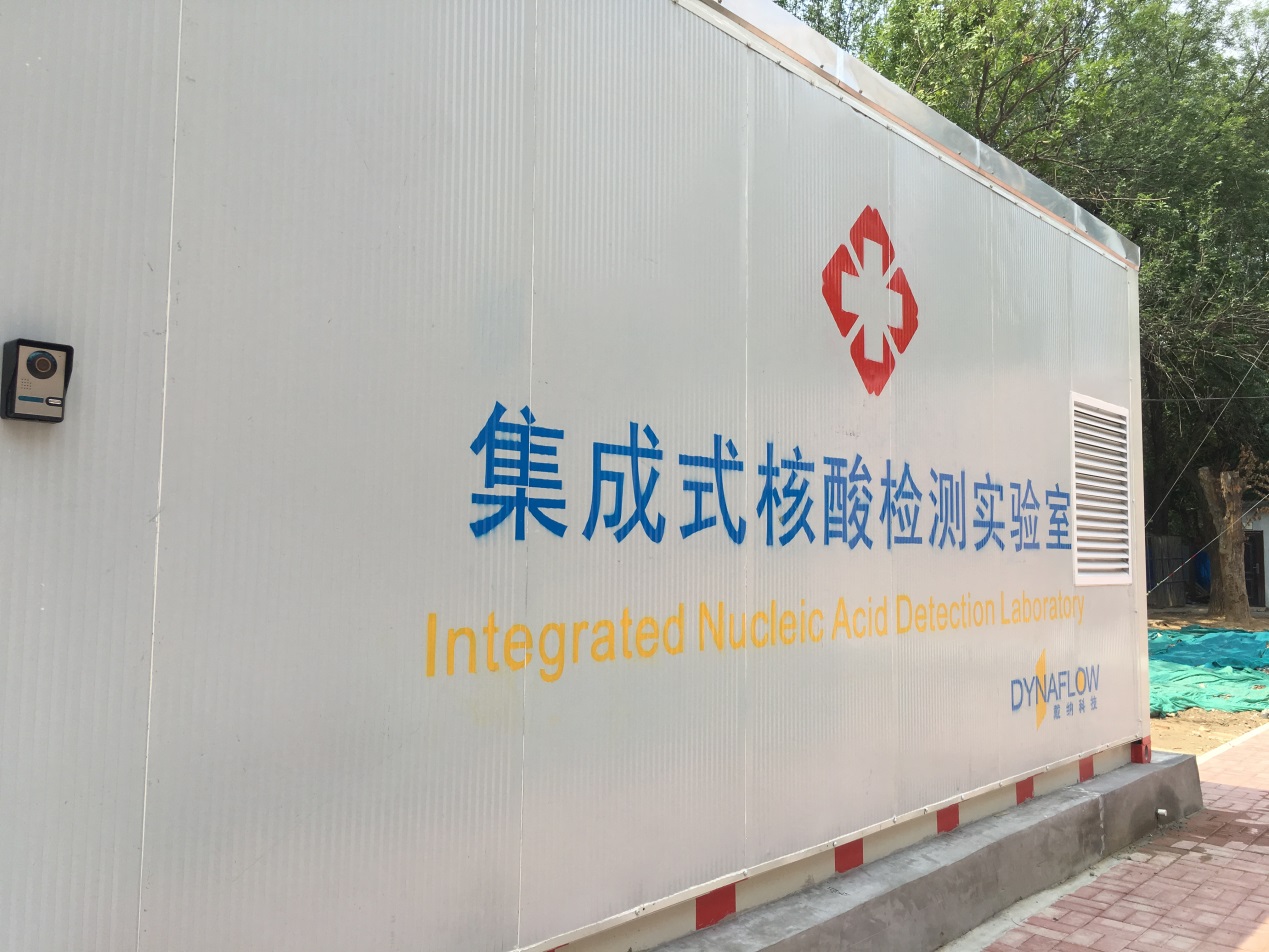
The integrated nucleic acid detection lab at Beijing Haidian Hospital. Wu Guoxiu/CGTN
The integrated nucleic acid detection lab at Beijing Haidian Hospital. Wu Guoxiu/CGTN
People can get their test results in several hours, thanks to this new lab in the hospital. The lab, also set up outside of hospital buildings, has been operating for a week.
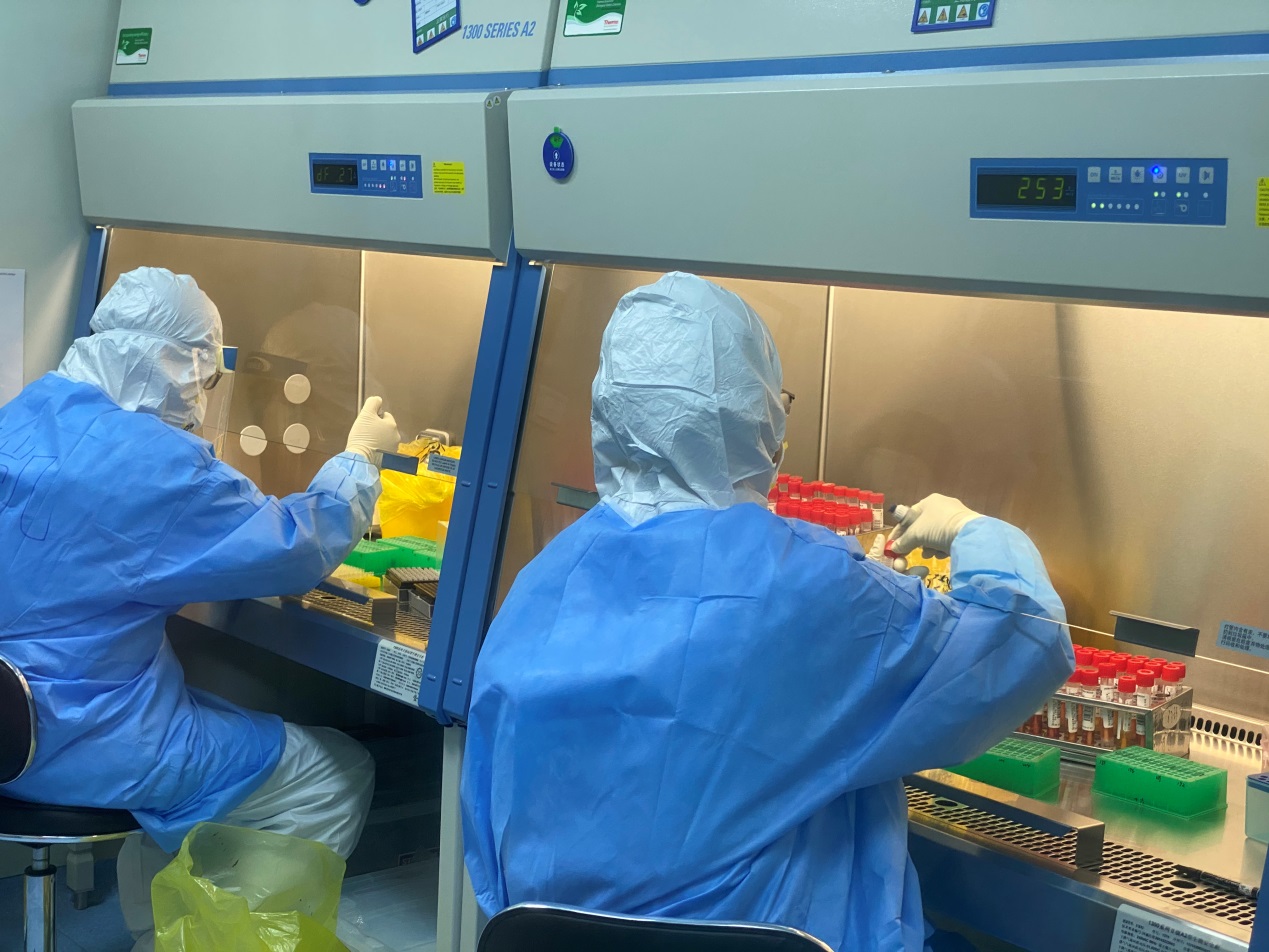
Inside the lab. /Photo provided by Beijing Haidian Hospital
Inside the lab. /Photo provided by Beijing Haidian Hospital
"It's only 54 square meters, but has strict divisions and tight layouts. It can basically play all functions of a PCR lab. It allows two or three lab workers every time. We do tests at 11 a.m. and 6 p.m. every day. The reports can come out 5 to 7 hours after throat swabs are collected," said Pan Yue, Director of Laboratory Department of Beijing Haidian Hospital.
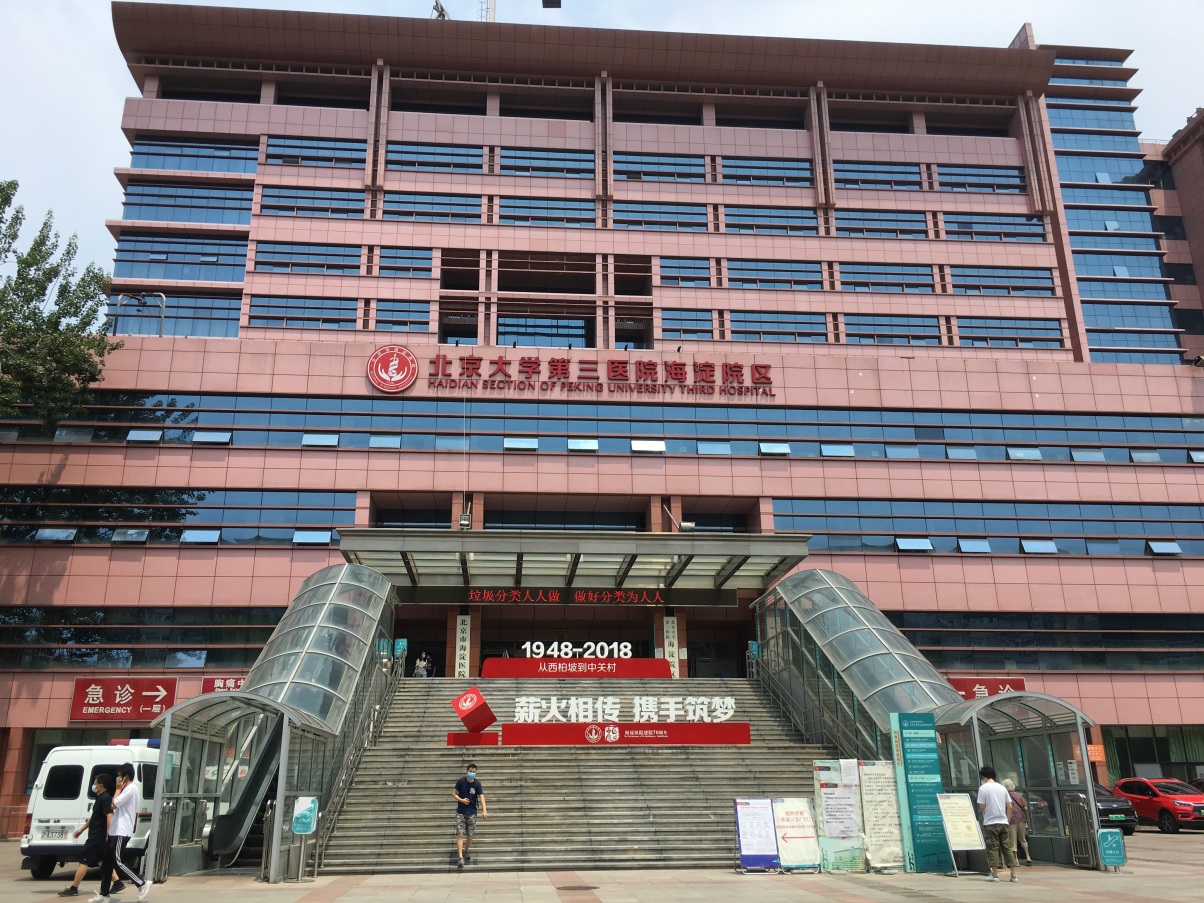
The main building of Beijing Haidian Hospital. Wu Guoxiu/CGTN
The main building of Beijing Haidian Hospital. Wu Guoxiu/CGTN
The city's health authority has authorized 98 institutions to perform for nucleic acid tests, with a total capacity to test 90,000 people everyday.